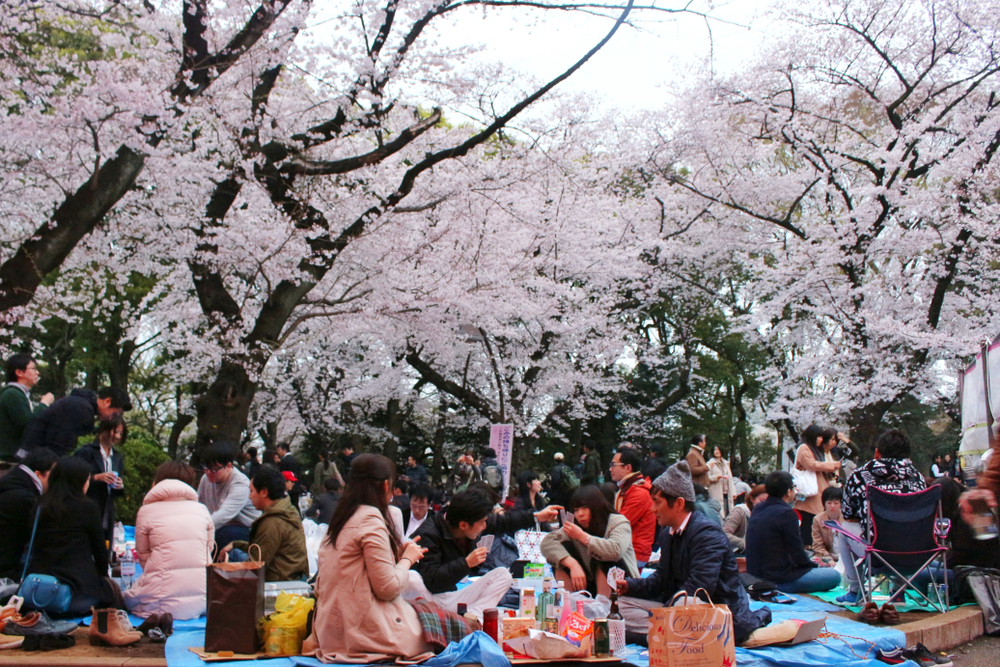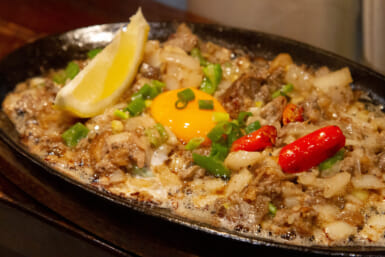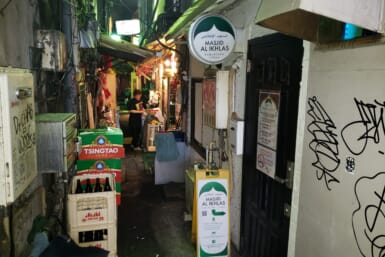As four new cases of coronavirus have been confirmed in Tokyo, the Tokyo Metropolitan Government issued a release on March 4, 2020, requesting residents to refrain from large gatherings at parks and riverbeds under management of the city during cherry blossom season.
The list of parks under management to Tokyo Metropolitan Government (TMG) includes some of Tokyo’s most popular spots for hanami parties, such as Ueno Park, Yoyogi Park, Hibiya Park and Inokashira Park. This comes on the heals of the announcement that the Nakameguro Cherry Blossom Festival has been canceled for 2020.
#Tokyo urges public not to hold #cherryblossom parties : The Asahi Shimbun #hanamicancelledhttps://t.co/2E59FLW4j3
— Asahi Shimbun AJW (@AJWasahi) March 4, 2020
What is Hanami?
Japan’s centuries-old tradition of hanami was originally a celebration of the beginning of the rice-planting season, and revelers offered gifts and sake to the gods (kami) living inside the cherry trees. Today millions of people descend upon Tokyo’s parks for the modern version of hanami, which involves drinking and eating with friends and work colleagues.
The annual cherry blossom forecast released by the Japan Meteorological Corporation (JMC) estimates that Tokyo’s cherry blossoms will begin blooming around March 15 (about a week earlier than last year) with full bloom arriving around March 23.
While TMG requests that people refrain from holding hanami parties, they do say it is okay to stroll through the parks and enjoy the cherry blossoms while following proper cough etiquette (use a mask, tissue, handkerchief or sleeve to cover your mouth and nose when coughing or sneezing).
Countries are now scrambling to contain the spread of the novel coronavirus, imposing travel restrictions and mandatory quarantines — echoing the shutdowns and emergency measures that swept across Asia. Here are some of the lessons we've learned so far. https://t.co/vQTYr79CJV
— CNN (@CNN) March 5, 2020
The Global Spread of Coronavirus
The novel (new) coronavirus disease, recently designated as COVID-19, is causing an outbreak of respiratory illness worldwide. The first cases of COVID-19 were reported in China in December 2019. On January 30, 2020, the World Health Organization determined the rapidly spreading outbreak constitutes a Public Health Emergency of International Concern.
The World Health Organization announced on March 3 that COVID-19 has been detected in 75 countries with almost 93,000 cases confirmed (approximately 91,000 of which were reported in China) and 3,160 deaths in total worldwide. WHO has raised its assessment of the risk of spread and the risk of impact of COVID-19 to very high at the global level.
Coronavirus Cases in Tokyo
Tokyo Metropolitan Government released an announcement on March 5 that the Tokyo Metropolitan Institute of Health and Safety has reported that a cumulative of 1,876 inspections for coronavirus have been conducted, and 44 cases have been confirmed among Tokyo residents.
The most recent cases – a 30-year-old female and a 50-year-old male – were reported on February 25. Neither patient traveled outside of Japan.
The United States CDC has issued a Level 2 Travel Health Notice for Japan, citing that while many cases of COVID-19 have been associated with travel to or from mainland China, sustained community spread has been reported in Japan, and the spread is ongoing.
U.S. Citizens in Tokyo: The Tokyo Metropolitan Government published a chart on what to do if you're worried you might be infected with #COVID19.
English: https://t.co/ZfDHaCjXr8
Japanese: https://t.co/GNWwWoIzYk pic.twitter.com/ZSgbxXqcj5— U.S. Embassy Tokyo, ACS (@ACSTokyo) March 5, 2020
Actions Taken by Japan Government to Prevent Spread of Coronavirus
At the request of Japan Prime Minister Shinzo Abe, public schools closed doors from Monday, March 2, to help stop the spread of coronavirus. In addition, a number of companies, venues, sports teams and attractions have canceled, postponed or curtailed events in Tokyo.
There has been speculation that the Tokyo 2020 Olympics could be canceled or postponed. However, on March 3 the International Olympic Committee released a statement expressing “its full commitment to the success of the Olympic Games Tokyo 2020, taking place from July 24 to August 9, 2020.”
Furthermore, the statement says, “The IOC [Executive Board] encourages all athletes to continue to prepare for the Olympic Games Tokyo 2020.”
The International Olympic Committee gave an unequivocal backing to this summer's Tokyo Olympics saying, ‘the Games can and will go ahead,’ despite the #coronavirus outbreak https://t.co/zgaP8UN9OL pic.twitter.com/yEuAdbTtaC
— Reuters (@Reuters) March 4, 2020
Contact Information
TMG has set up a consultation desk for inquires regarding novel coronavirus infections. Tokyo residents with questions regarding the novel coronavirus, including questions related to preventing the infection and what to do when concerning symptoms develop, can contact the dedicated call center at Navi-dial 0570-550571. The assistance is available in English, Chinese and Korean. Hours are from 9am to 9pm including weekends and holidays.
Residents are encouraged to contact the consultation center if they display any of the following symptoms for four days or more (two days for elderly people:
• Fever of 37.5° C or higher
• Malaise (feeling of weakness and discomfort)
• Shortness of breath (dyspnea)
Feature image: Mctaay / Shutterstock.com









